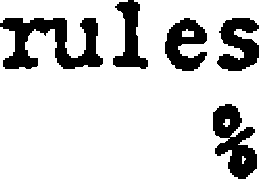TAB LE 48
25.21 Civ) 441
' Comparison of non-Aboriginal view of the role σf the mother in
’ Aboriginal society and Australian society
Item 7
Mother makes
mid-point
rules
Item 28
Father makes
rules
Non-Aboriginal view of
Aborigines (N=289)
Non-Aboriginal view of
Australians (N-=289)
10.6
15.3
51.4 38.0
41.0 43.7
The non-Aboriginal view of Aborigines also supported-,that of
Aborigines. Both Aborigines and non-Aborigines saw Aboriginal
W
households as not female dominated. This perception may reflect
ft
the fact that those Aborigines who persevere at school have stable
homes - possibly a large proportion having a white male figureɪ.
A scanning of Aboriginal writings does not reveal any mention of
the presence of white males in Aboriginal households.
Nevertheless, as Gale and Wundersitz’findings shov⅛ this is
a reality which must also influence the stereotypes which Aboriginal
people themselves hold about their values.
2
Non-Aborigines stereotype Australians as having fathers who make
the rules.
25.21Cv) TABLE 49 ∙
" Comparison of non-Aboriginal and Aboriginal view of the role
of mothers in Italian households
Item 7
Mother makes
Il
ιid-point


Non-Aboriginal view of
Italians (N=289)
Aboriginal view of
Italians CN=93)
18.6 25.6
14.0 29.0
Item 28
Father makes
rules
55.8
57.0
ɪsee Gale and Wundersitz'findings,
2
According to the definition given
p. 323 above.
, p. 325 above.
More intriguing information
1. For Whom is MAI? A theoretical Perspective on Multilateral Agreements on Investments2. Tax Increment Financing for Optimal Open Space Preservation: an Economic Inquiry
3. News Not Noise: Socially Aware Information Filtering
4. A Dynamic Model of Conflict and Cooperation
5. The name is absent
6. The name is absent
7. The name is absent
8. The Dictator and the Parties A Study on Policy Co-operation in Mineral Economies
9. INTERPERSONAL RELATIONS AND GROUP PROCESSES
10. sycnoιogιcaι spaces